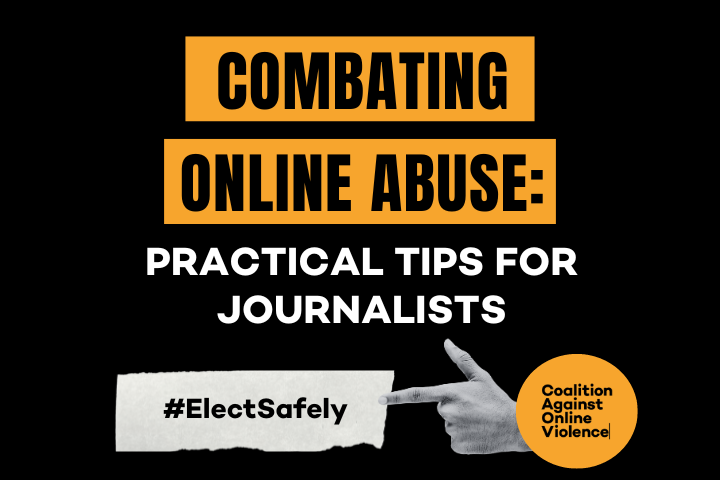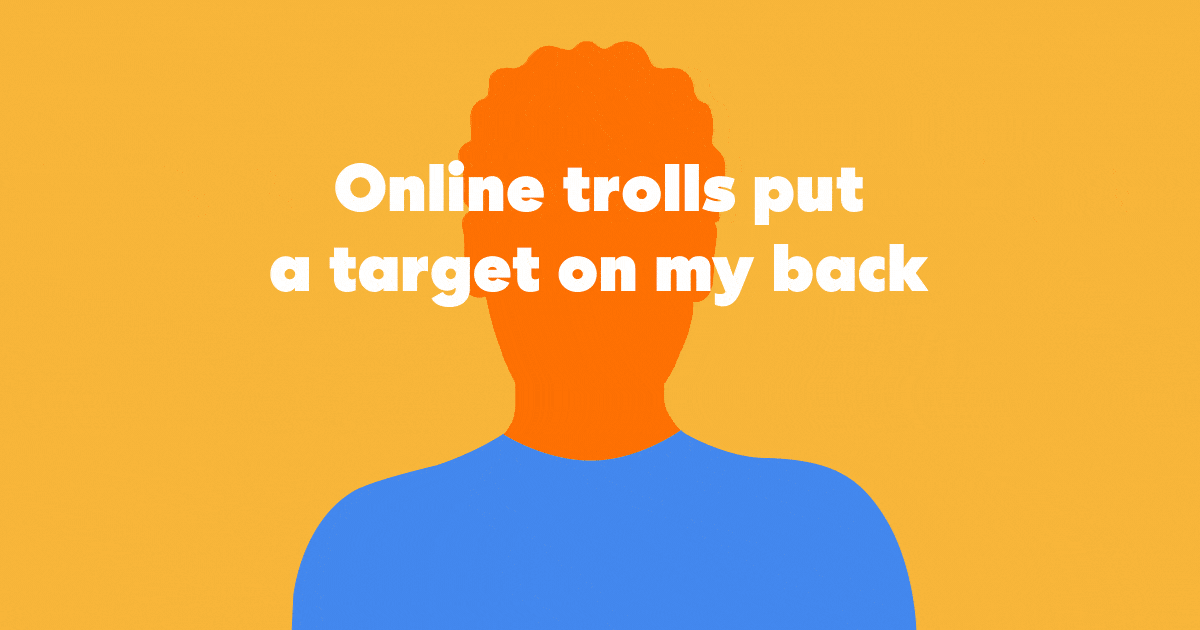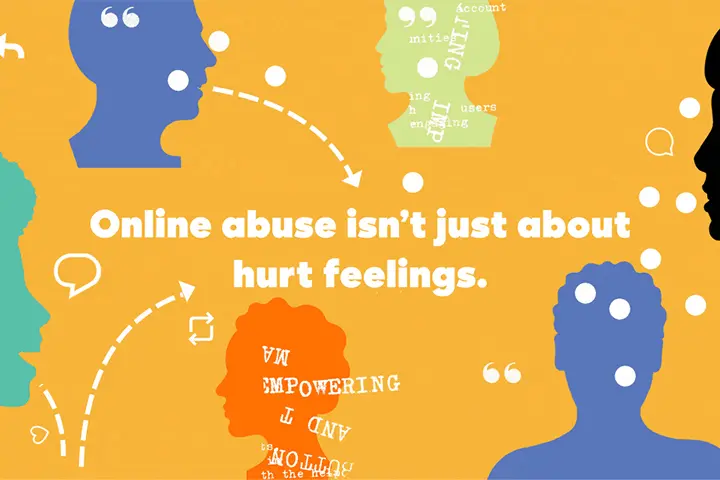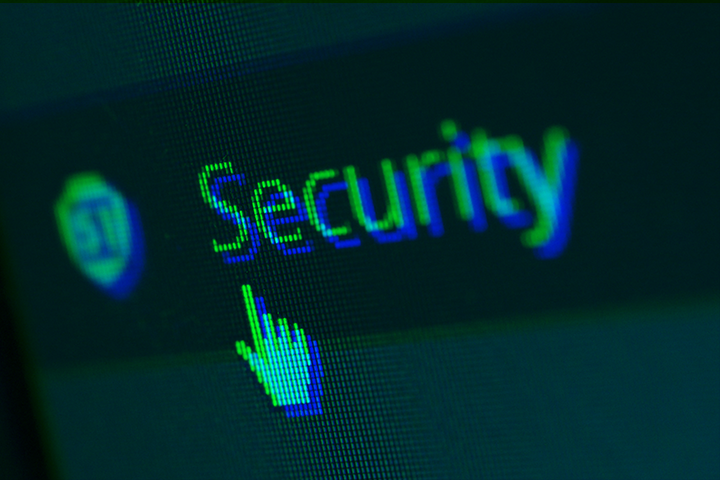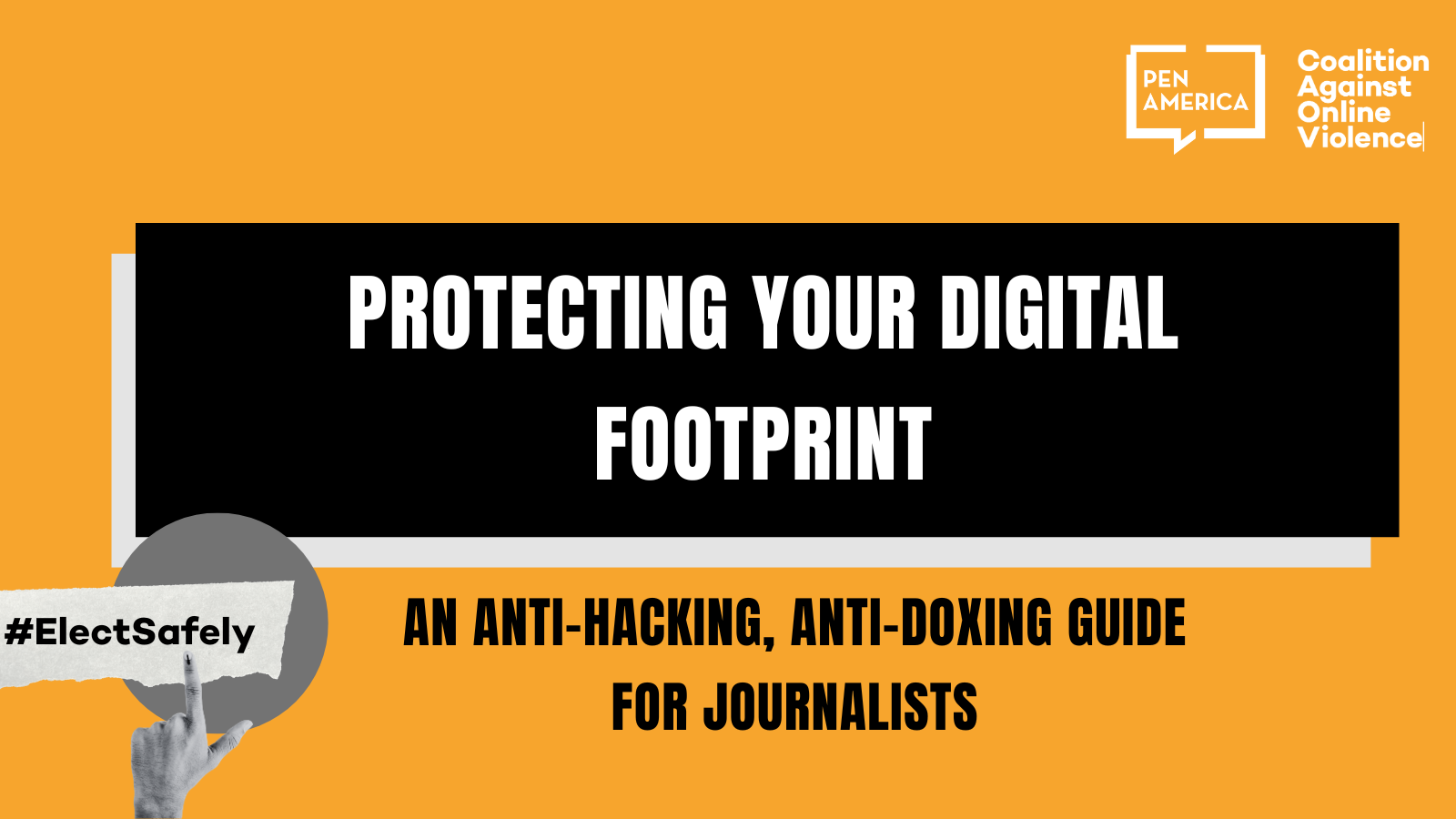
In the lead-up to the U.S. election, journalists and writers face increased risks of online abuse and threats. In response, PEN America joined forces with the Committee to Protect Journalists and the International Women’s Media Foundation to run a free webinar series, U.S. Election Safety Summer, designed to empower journalists with the strategies and resources they need to safely cover this election season.
The third session in this series, led by PEN America’s digital safety experts Viktorya Vilk and Jeje Mohamed, focused on protecting against doxing, hacking, and impersonation. If you missed it, you can watch the full session here:
And below here are some key takeaways:
Understand abusive tactics
- Doxing: Publication of private information, such as your home address or cell phone number, without your consent
- Hacking: Unauthorized access into one of your accounts
- Impersonation: Creation of fake accounts mimicking yours, often using your name and photo
- Message bombing: Flooding a communication channel, such as your cell phone or email, with so many messages that you can’t use it
Search for yourself online to find what information is publically available
- Use privacy-focused search engines like DuckDuckGo and Brave (rather than Google).
- To search more effectively, try “Google dorking” (ie, deploying specific symbols or phrases, such as asterisks, quotation marks, or ‘filetype:PDF”).
- Conduct reverse image searches using Google, Bing, or Tineye.
- Set up a Google alert for your name, address, or other information.
Remove sensitive information
- Report private information on social media platforms using in-platform reporting tools.
- Ask google to remove and hide sensitive information.
Protect your data
- Check for data breaches at haveibeenpwned.com.
- Use a free data scrubbing services like permission slip or a paid one, such as DeleteMe, Optery, or Kanary.
Know the digital security basics
- Create a list of your 10 most sensitive accounts (think email, social media, banking cloud storage, etc.).
- Create unique 16+ character passwords for each account. Get an encrypted password manager (e.g., Bitwarden, 1Password) to make this easier.
- Enable two-factor authentication using an authenticator app, such as Google Authenticator or Authy—don’t use SMS.
- To avoid sim-hijacking, set up a PIN on your mobile account through your cell phone provider.
- Separate your personal and professional presence online.
- Use at least two separate email addresses and phone numbers for private vs public use.
Audit social media accounts
Regularly review and adjust settings on platforms like Twitter/X, Instagram, LinkedIn, Venmo, and Facebook. Be sure to take the steps below for each account:
- Enable 2FA.
- Review connected apps and devices.
- Adjust privacy and visibility settings, including location tracking (see detailed instructions here).
By implementing these strategies, journalists and writers can better protect themselves against online threats while maintaining the public profile necessary for their work.
- Read more in our Online Harassment Field Manual.

